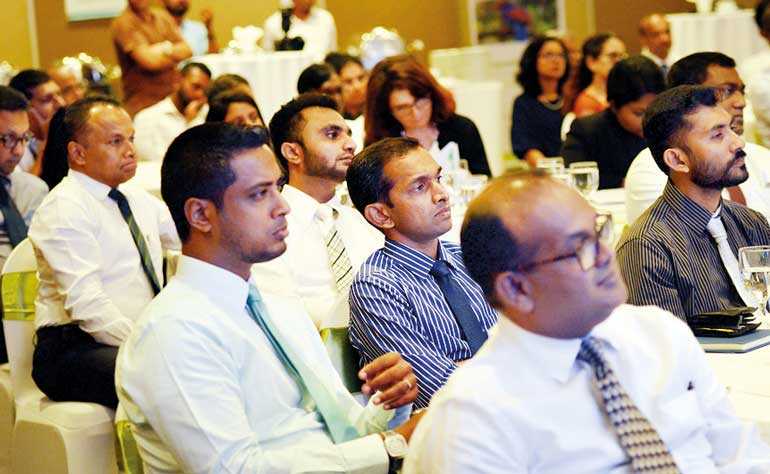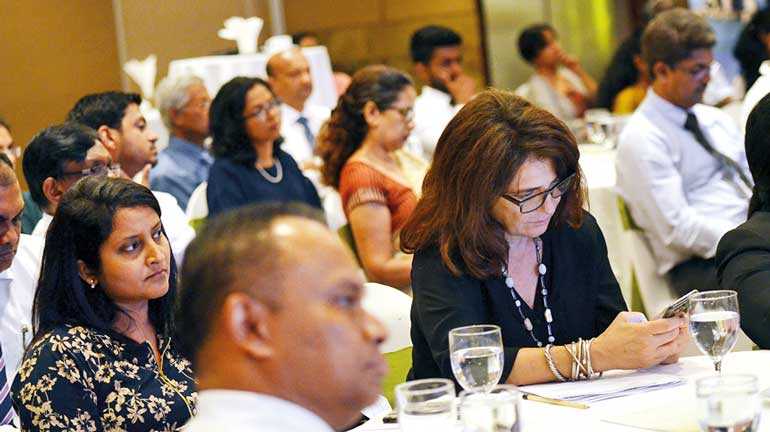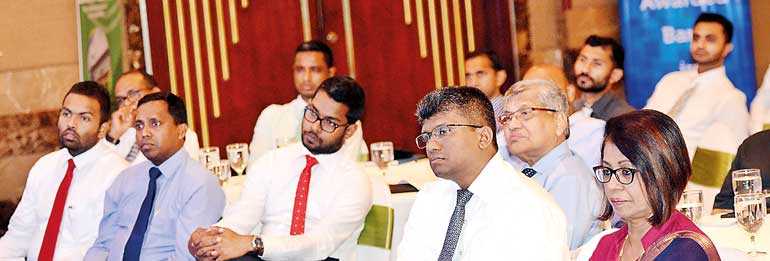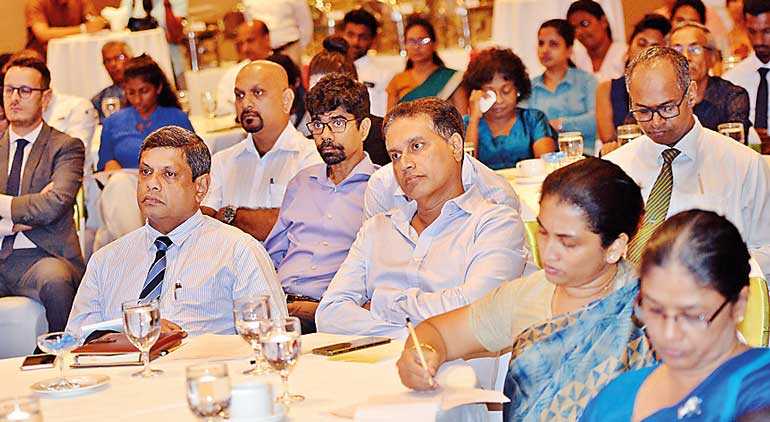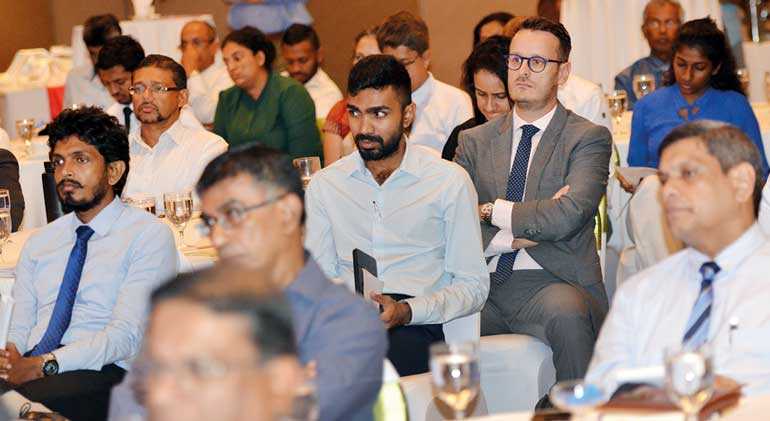Thursday Feb 19, 2026
Thursday Feb 19, 2026
Thursday, 11 October 2018 00:59 - - {{hitsCtrl.values.hits}}
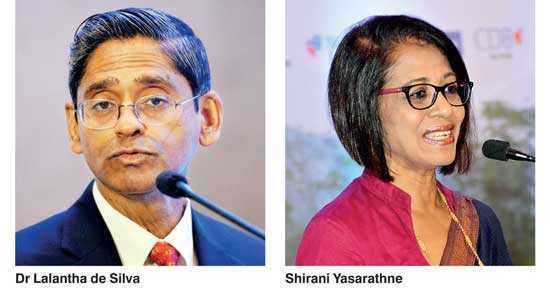
By Divya Thotawatte
Sri Lanka, as an island, is more prone to the increasing impacts of climate change, and if necessary action is not taken, they will affect not only the economy but the country’s environment, citizens, infrastructure and businesses, said an expert recently.
Speaking on ‘Climate Change Challenges and Solutions for Sri Lankan Businesses’ at the third Annual General Meeting and CEO Forum of the Sri Lanka Business and Biodiversity Platform (Biodiversity Sri Lanka), Attorney-at-Law Dr. Lalanath de Silva said that although climate change is not of Sri Lanka’s making, the country has no choice but to prepare for and adapt to climate change.
“With climate change, some places will warm up and others will cool down. Some places will become wetter and others will dry out. There will be winners and losers in that process. We cannot stop climate change on our own. We cannot stop the impacts of climate change on Sri Lanka, but we can prepare for them, safeguard ourselves from them, mitigate their impacts, and where we are the winners of climate change, we can capitalise and make the best of it,” he said.
Sri Lanka has seen a historical increase in the number of natural calamities such as droughts, floods, geographic changes to vector borne diseases, coastal erosion, tropical storms, lightning, crop failures, landslides and siltation of reservoirs. All of these are related, at least partially, to temperature and rainfall changes. Coastal erosion is partly the result of rising sea levels and partly other causes, such as river-bed sand mining and unplanned coastal building activities. These events have devastating and adverse impacts on our environment, citizens, infrastructure, businesses, and the national budget.
Dr. de Silva explained that to overcome these challenges, it is of utmost importance for Sri Lanka to increase its physical resilience to reduce the impact of disasters and financial resilience to deal with the impact when the disaster happens. He said: “To improve physical resilience, the World Bank is supporting the Government’s Climate Resilience Improvement Project (CRIP) and recommends that the country should identify the current climate risk and implement immediate risk mitigation interventions, identify future drivers of risk and create basin-level long-term risk mitigation investment plans, followed by physical investments.
According to Dr. de Silva Sri Lanka, it is important to ensure the survival and prosperity of its citizens. If action is not taken immediately, the country will be left as a devastated nation hurtling down an economic spiral of doom. Since Sri Lanka’s carbon footprint is miniscule compared to other nations who can make a difference to climate change, it is best to prioritise and concentrate on climate adaptation.
“Tap into climate finance that is becoming increasingly available to nations and businesses. Support scientific research into climate scenarios and solutions. Ensure that politicians are listening to you and get them to put the right policies, laws and regulations in place. Change your business practices and look to invest in those areas that are likely to be winners in this unfolding game of climate jeopardy. We also can and should become world climate adaptation leaders, nationally and business-wise. We can beat this doomsday future and prosper, but we must act now.”
In order to get climate change adaptation right, Dr. de Silva said that 10 actions should be urgently initiated. He said that firstly, the citizens, politicians and the public and private sectors should be made aware of the need for adaptation and what that means in their daily lives as they are not adequately aware of climate change and the disatsers and dangers as well as the opportunities it will bring to our country.
He said that it is also important to enact appropriate and comprehensive climate change laws and regulations that establish the necessary legal and regulatory infrastructure to effectively deal with climate change and adaptation. “Some would argue that we have laws and institutions for environmental protection, disaster management, generation, analysis and dissemination of meteorological data and information, and planning etc., and that these are adequate to deal with the situation. I agree that in a perfect world, that may well be the case. But Sri Lanka’s laws, agencies and law enforcement are far from perfect,” he explained.
It is necessary to have a national adaptation plan and also create the right economic and political incentives and disincentives for climate adaptation, said Dr. de Silva. “Climate change requires us to look at the future through the lenses of many generations. For example, an investment in a building located in the shoreline where it would be washed into the sea in the next five to 10 years will probably not yield the economic returns that were calculated to justify its construction in the first place. We need disincentives in the form of tax breaks and maybe even subsidies to encourage building tourist facilities in places that are safe from climate damage and perhaps will enhance our efforts to adapt to climate change.”
According to him, the private sector should become proactive and influence the Government to take climate change seriously and put adaptation on a war footing. The businesses should do so, not only because it is right or good, but because it is in their financial and economic interest to do so.
In order to mitigate and manage climate risks better, the insurance industry must be beefed up, especially those wishing to undertake climate insurance. The insurance industry is well aware of climate risks, have been studying it and mainstreaming it for some time, and should be motivated and encouraged to enter this arena, Dr. de Silva stated.
Furthermore, the private sector must take unilateral action within the law to protect itself from climate impacts by undertaking a climate risk assessment of the business.
Above all, it is important to have a fabulous weather and climate prediction and early warning systems in place. “For a nation that is as vulnerable to climate change as we are, this is a wholly inadequate budget for a department that is critical for our survival. We need this department to be revamped, upgraded and adequately funded as a top priority matter.”
Lastly, Dr. de Silva said that it is essential to have a transitional plan which could establish an interim coordinating body under the President at the highest level – consisting of key regulatory and infrastructure related agencies and Ministries dealing with industry, tourism, lands, forests, coasts, marine affairs, local authorities, environment and wildlife.
He stated that a transitional plan where agencies are instructed through appropriate legal instruments to start taking climate considerations into account in decision-making should be initiated. The transitional plan needs to mobilise local authorities and Provincial Councils in vulnerable areas to be made aware of the oncoming dangers and to prepare for it within their mandates. “We need this plan to mobilise funding for climate adaption,” he noted.
“None of these actions can even be started unless and until we have in our mind readied ourselves for them,” Dr. de Silva stated at the end of his speech while highlighting the fact that it is important for all Sri Lankans to re-imagine the way of living and to use the opportunities that climate change would offer.
Pix by Shehan Gunasekara
